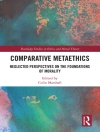In the last fifty years, average overall health status has increased more or less in parallel with a much celebrated decline in mortality, attributed mostly to poverty reduction, sanitation, nutrition, housing, immunization, and improved medical care. It is becoming increasingly clear, however, that these achievements were not equally distributed. In most countries, while some social groups have benefited significantly, the situation of others has stagnated or may even have worsened. If health is a prerequisite to a person functioning as an agent, inequalities in health constitute inequalities in people’s capability to function — a denial of equality of opportunity. So why should a concern with health equity be singled out from the pursuit of social justice more generally? Can existing theories of justice provide an adequate account of health equity? And what ethical problems arise in evaluating health inequalities? These are some of the important questions that this book addresses in building an interdisciplinary understanding of health equity. With contributions from distinguished philosophers, anthropologists, economists, and public-health specialists, it centres on five major themes: what is health equity?; health equity and social justice; responsibilities for health; ethical issues in health evaluation; and anthropological perspectives.
Sudhir Anand & Fabienne Peter
Public Health, Ethics, and Equity [PDF ebook]
Public Health, Ethics, and Equity [PDF ebook]
购买此电子书可免费获赠一本!
语言 英语 ● 格式 PDF ● ISBN 9780191534805 ● 出版者 OUP Oxford ● 发布时间 2004 ● 下载 3 时 ● 货币 EUR ● ID 8040397 ● 复制保护 Adobe DRM
需要具备DRM功能的电子书阅读器












